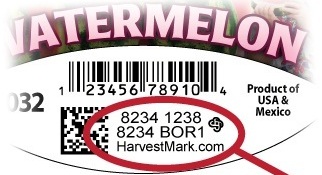Traceability is a crucial topic of concern that reaches into all aspects of the packaging industry. It impacts prudct security, affects consumer safety, thwarts counterfeiters and facilitates quality improvements. Further, it's no longer simply a good idea; in many parts of the globe, implementing serialization and traceability technology is becoming a requirement.

Because the technology is necessary, yet not totally familiar to many packaging professionals, WestPack organizers offered a seminar on Traceability and Serialization during this year's event. The experts leading the discussion include:
Johnathan Hawes, sr. director of US/Canada sales for YottaMark: His segment of the seminar covered the various benefits traceability can provide, including increasing customer engagement, facilitating regulatory compliance, and preventing chargebacks. Hawes' company is behind HarvestMark, a popular fresh food traceability and insights platform used by strawberry producer Driscoll's and other produce providers. John DiPalo, COO of Acsis Inc.: DiPalo discussed how companies can develop and implement an enterprise serialization plan. With more than 25 years of process and systems analysis and design experience, DiPalo represents a company that helps companies put such solutions in place in their businesses. Bill Fletcher, managing director of Pharma Logic Solutions: This segment covered various lessons learned during projects Fletcher and his firm have executed. The firm focuses on pharmaceutical serialization, track-and-trace and anti-counterfeiting efforts for commercial and clinical products.
During the seminar, the presenters discussed how packaging executives and others across the supply chain have been somewhat hesitant to adopt the technology.
"It's a cost that no one wants to incur, unless there's a benefit," he said. Fortunately, there are a number of advantages that traceability can provide, including improving safety of products, fostering customer trust and engagement, and providing ways to pinpoint problems and correct them.
DiPalo mentioned that in order for a traceability initiative to succeed, implementation and execution must be a team effort.
"All of the aspects need to be connected in a meaningful way," he said. "It's a complete enterprise system."
Finally, Fletcher discussed the crucial role serialization can play in preventing problems in the pharmaceutical supply chain, reporting that there were 102 incidents of counterfeit pharmaceutical products reported in the U.S. in 2011 alone. While his company focuses on pharmaceutical companies, he related that the experiences and lessons he's witnessed could largely be applied successfully to other industries in helping them implement and streamline such practices in their own businesses.





